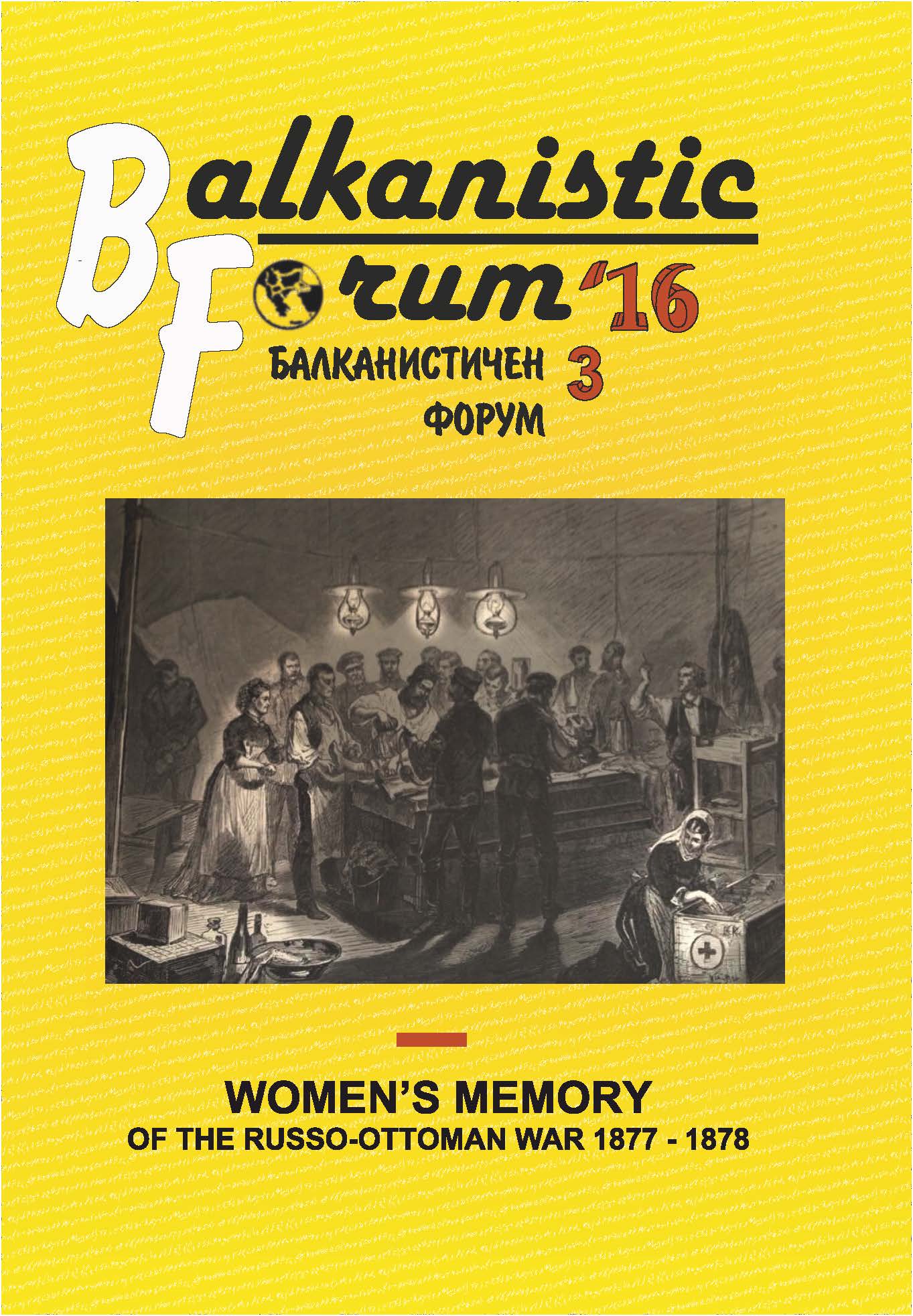
We kindly inform you that, as long as the subject affiliation of our 300.000+ articles is in progress, you might get unsufficient or no results on your third level or second level search. In this case, please broaden your search criteria.


The Russo-Ottoman war 1877 – 1878 was an important challenge for the peace activists in Europe: for religious war-resistance groups, for pacifists, as well as for supporters of social justice. Pacifists started new iniatives for maintaining peace. They tried to prevent the war by organization of international conferences, to reduce the participation in the war, to find new forms like arbitration or Inter-parliamentary union. For many of the most prominent figures of the peace movement in the second half of the 19th century: Henri Richard, Frederic Passy, Leo Tolstoy, Bertha von Suttner, the experience they achieved during the Russo-Ottoman war was very important for shaping their views. Bertha von Suttner (1843-1914) lived during the time of the Russo-Ottoman war 1877 – 1878 in Caucasus not far from the front line. Traditionally educated to admire military activities, she described in her memoirs how her attitude toward the war started to changeas a result of her experience there. Her expeperience from 1877 – 1878 contributed to the change of her views which made her a leading person in the anti-war movement in Europe in the next decades.
More...

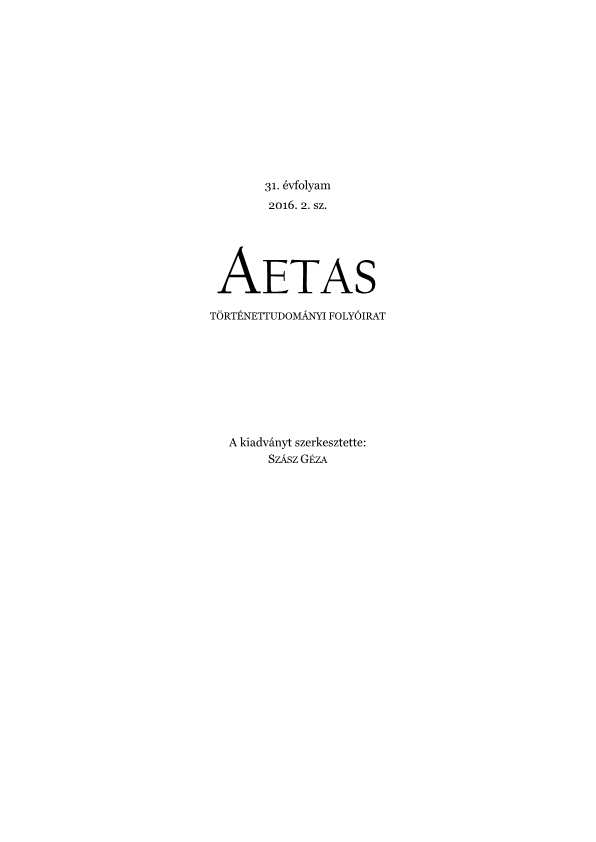
Ruby Lal: Coming of Age in Nineteenthcentury India. The Art of Playfulness. Cambridge University Press, Cambridge, 2013. 229 oldal
More...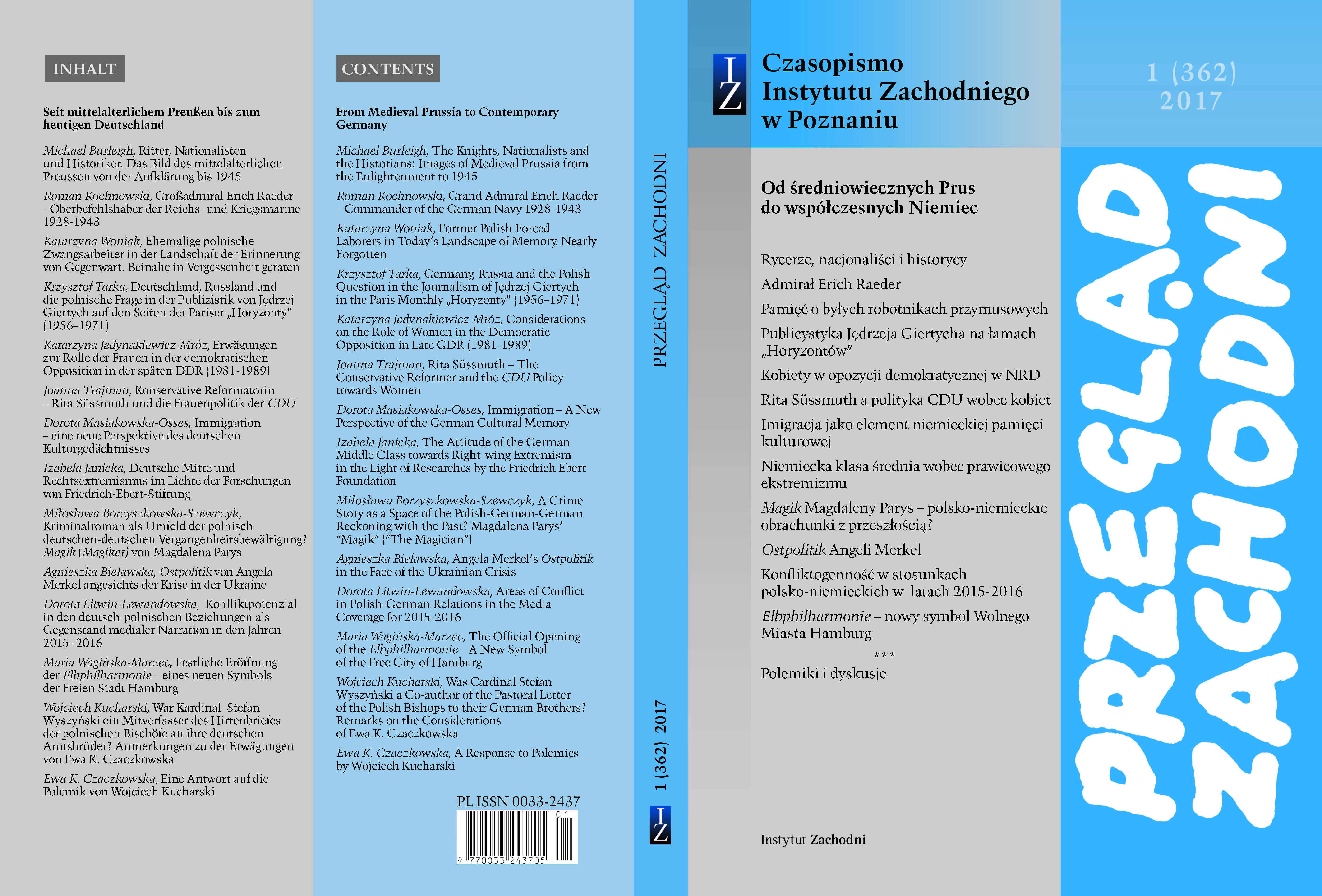
Social and political changes taking place in Germany since the late 1960s contributed to the creation of a new women's movement and the alteration in the status of women. These transformations were also evident in the voting preferences, mostly of the young women, who began to vote, not for the CDU as was previously the case, but for the left-wing parties. Therefore, the assumption of the Chancellor's office by Helmut Kohl in 1982 could not mean a continuation of the traditional policy of the Christian Democrats towards women; on the contrary, it had to lead to its alteration. A highly symbolic expression of that change was the national party congress on women’s issues held in Essen in 1985 and the appointment of Rita Süssmuth as the first Federal Minister of Family Affairs, Senior Citizens, Women and Youth. The new minister, who was led by Christian values, attempted to adjust the Union’s policy towards women to the changed social realities, thus becoming a conservative reformer. Her views and actions relating for instance to the women's quota, extension of the institutional care over children or the pension for women, encountered the opposition from the party. Her activity as the President of the Bundestag was also criticized on the grounds that she was involved in the issues regarding the condone of abortion and the marital rape – the topics which were considered to be controversial by the Christian Democrats. However, because of the ability to engage in cross-party alliances and her conviction of the validity of her solutions, Süssmuth has become the symbol of the modern CDU policy towards women.
More...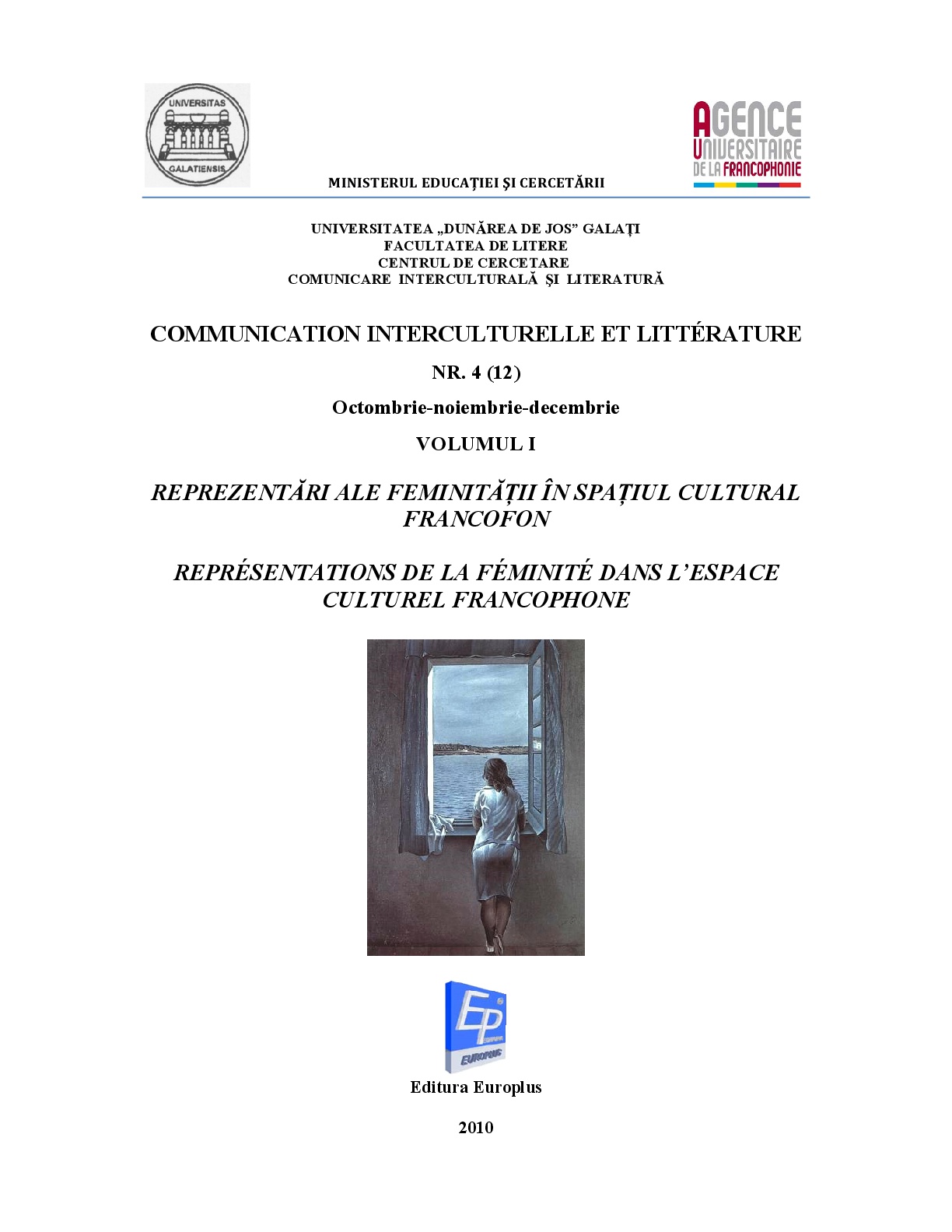
Dans The Straight Mind (La Pensée Straight), Monique Wittig propose une déconstruction de l’idéologie hétérosexuelle en tant que système politique d’un point de vue lesbien, en se plaçant donc à la marge de l’hétéro-patriarcat pouvoir mieux l’examiner et le subvertir. En remettant en cause le mythe essentialiste de « La » femme, l’auteure pose le lesbianisme comme une identité affective mais surtout politique et économique de résistance à l’hétéro-sexisme et au patriarcat. Cet ouvrage est l’un des ouvrages théoriques fondateurs du féminisme matérialiste et par extension des Gender Studies puisqu’il implique le questionnement même des catégories de sexe/genre social. C’est ce féminisme « à la française », né à la fin des années 1970 et inclus dans le corpus de la French Theory, qui a donné naissance aux Gay & Lesbian et aux Queer Studies aux Etats-Unis avant de rayonner dans tout l’occident jusqu’à aujourd’hui. Dans Les Guérillères et Le Corps lesbien en particulier, l’auteure rend un hommage lyrique aux corps des femmes totalement « décolonisés » de l’emprise des hommes (les femmes ne sont-elles pas « le continent noir » d’après Freud ?), créant ainsi une nouvelle mystique lesbienne, entre poésie et politique. Dans cette optique, je propose une analyse de l’assertion de Wittig selon laquelle « les lesbiennes ne sont pas des femmes » à la lumière du travail de Simone de Beauvoir, Collette Guillaumin, Christine Delphy et bien entendu Beatriz Preciado, Teresa de Laurentis et Marie-Hélène Bourcier.
More...
eorije i politike roda: Rodni identiteti u književnostima i kulturama jugoistočne Evrope = Theories and Politics of Gender: Gender Identities in Literatures and Cultures of South-Eastern Europe / Tatjana Rosić, ur.; Marija Grujić – Godišnjak XXII, Serija C: Teorijska istraživanja, knj. 12 – Beograd: Institut za književnost i umetnost, 2008 (Beograd : Čigoja štampa). – IV, 446 str. ISBN 978-86-7095-145-7
More...
Monica Negru is the author of the book about one of the women society from the interwar Romania, the Romanian Orthodox Society of Romanian Women, the first book about this important women organisation. The book has two parts: an extensive study about the organisation and a selection of the most improtant documents.
More...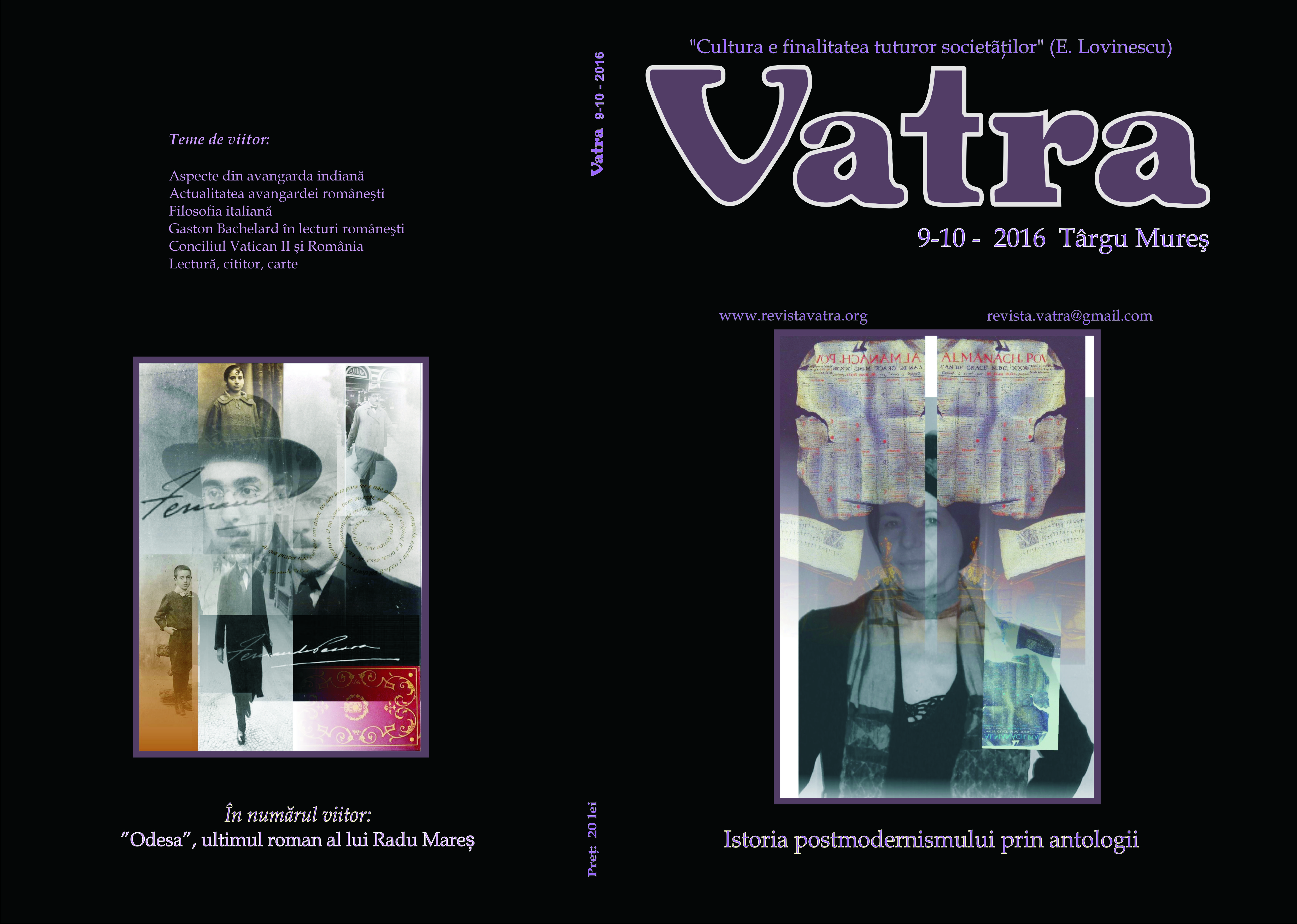
This text shows the history of Ciptoreanca and her last wish to free all her gypsy slaves in the end of the 18th century.
More...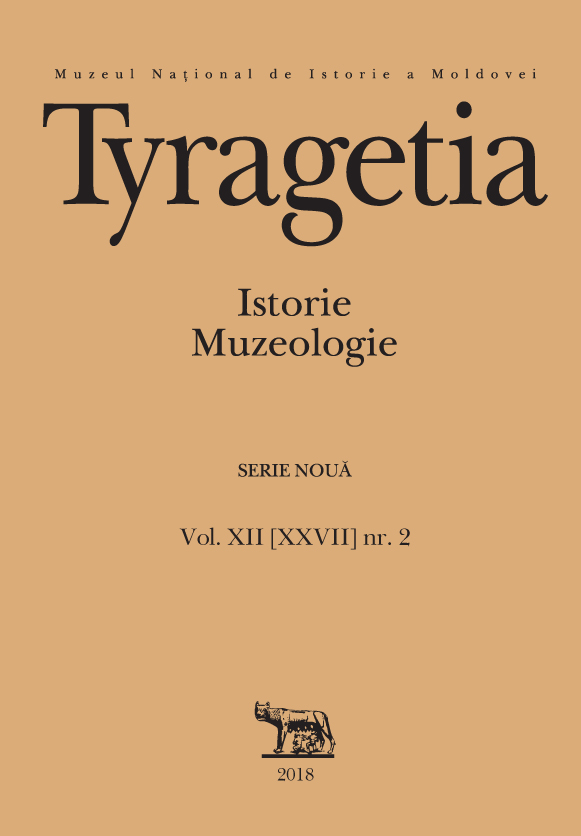
The documents remaining from the witchcraft trials from 16th-18th century Transylvania record information about women. These trials were secular. The drafted documents were numerous and varied: investigations, witness statements, sentences.In these witchcraft trials some women were accused, but most often they were among the witnesses. Their statements reflect their everyday life in the way they perceived it. Most of the women were affected by the illnesses or the death of their children or spouses. Many visited witches to prevent the violence of their men and to bring harmony to the family. Other statements describe the housewives concerns about households well-being and the health of animals.A special character in the community was the quack. Most of them were women. These quacks were believed to have supernatural powers. This was an image that they constructed in order to attract those in pain, but also to impress and to intimidate. In Transylvania, unlike in the Western Europe, most of those judged for witchcraft were quackets. Under these circumstances witches were perceived with trust, but also with fear.The multitude of concerns and the states of women in a community determined the variety of relationships between them.The analysis of documents of witchcraft trias reveals, better than any other document, the complex and contradictory character of the spiritual life of women in the 16th-18th centuries.Through these historical sources, the woman's image is complemented by new aspects of her family and community life.
More...
Alexandra Osipovna Smirnova (06.03.1809, Odessa - 07.06.1882, Paris), nee Rosset , is a widely known personage, especially in the history of Russian literature. One of the outstanding women of the Petersburg secular society, the maid of honor of two empresses (Maria Feodorovna and Alexandra Feodorovna), the wife of a diplomat, she was distinguished by rare beauty, intelligence, education and independence of judgments. She was in close friendly relations with all the famous people of her era; Pushkin, Lermontov, Vyazemsky, Khomyakov, Rostopchina, Myatlev, and others sought her company and dedicated their poems to her.Her life is sufficiently illuminated in the scientific literature and journalism, so we do not set the task of repeating or rewriting the known events of her life. She became the object of our attention in the study of the topic of outstanding Moldavian women of the 19th century. In the works of Romanian historians already at the beginning of the 20th century there were notes in which her Moldavian origin was cultivated. Without any documentary evidence, this tradition is also shared by some contemporary colleagues.
More...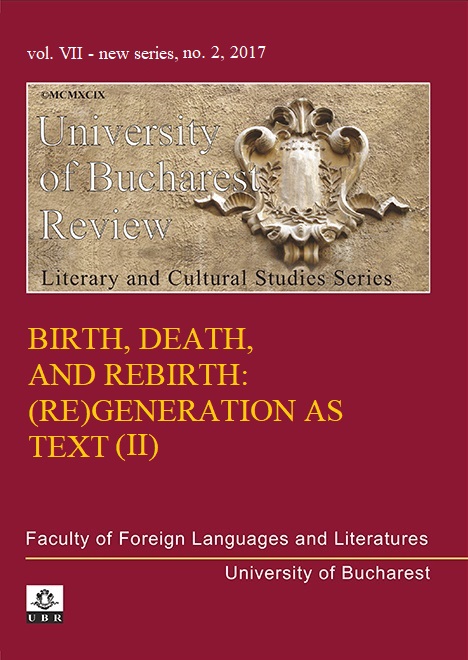
An emblematic prose master of The Lost Generation, Ernest Hemingway owes quite a lot to his classic 19th century predecessors: to Mark Twain as well as to Walt Whitman; to Stephen Crane the first American naturalist fiction writer, but likewise to Stephen Crane the fine poet, so accurately anticipating modern metaphor. Yet my concern here focuses on the particular lyrical influence upon Hemingway’s style and vision of the least expected poet, herself a champion of minimalism. For some years now Hemingway’s works and personality have been privileged objects of a certain interest revival, on the part of filmmakers, literary critics, scholars and students alike, who have once again fallen under his spell. Here I have preferred a return to Hemingway’s African safari setting and also some hints at his Spanish setting – in a couple of short stories which I hope to defamiliarize. Although (the title of) my paper here may echo the Canadian literary theorist Linda Hutcheon’s now canonic book about “narcissistic narrative” and “the metafictional paradox” (as postmodern rather than modern prose characteristics) – this essay actually represents a re-reading in a refreshing poetic key of Hemingway’s bestknown (and most obviously self-reflexive) short-stories. Moreover, by the ‘(meta)feminine paradox’ I mean literature/poetry of women about/beyond femininity – and particularly Emily Dickinson’s verse. Because, despite his self-(un)masking cynicism, Hemingway’s writings do evince deep poetic qualities, just waiting to be re(dis)covered.
More...
The project Knjiženstvo, Theory and History of Women’s Writing in Serbian until 1915 won the prestigious “Anđelka Milić” award for 2020 for the support to the development of creating knowledge in the area of gender studies in Serbia (theory and research).
More...
The project Knjiženstvo, Theory and History of Women’s Writing in Serbian until 1915 was founded within the project cycle of the Ministry of Science, Education and Technological Development that lasted between 2011 and 2019. The goal of the project is to shed light on the history of women’s literature in Serbian, and to theorise its particularities while reshaping existing, mostly western notions and models. The
More...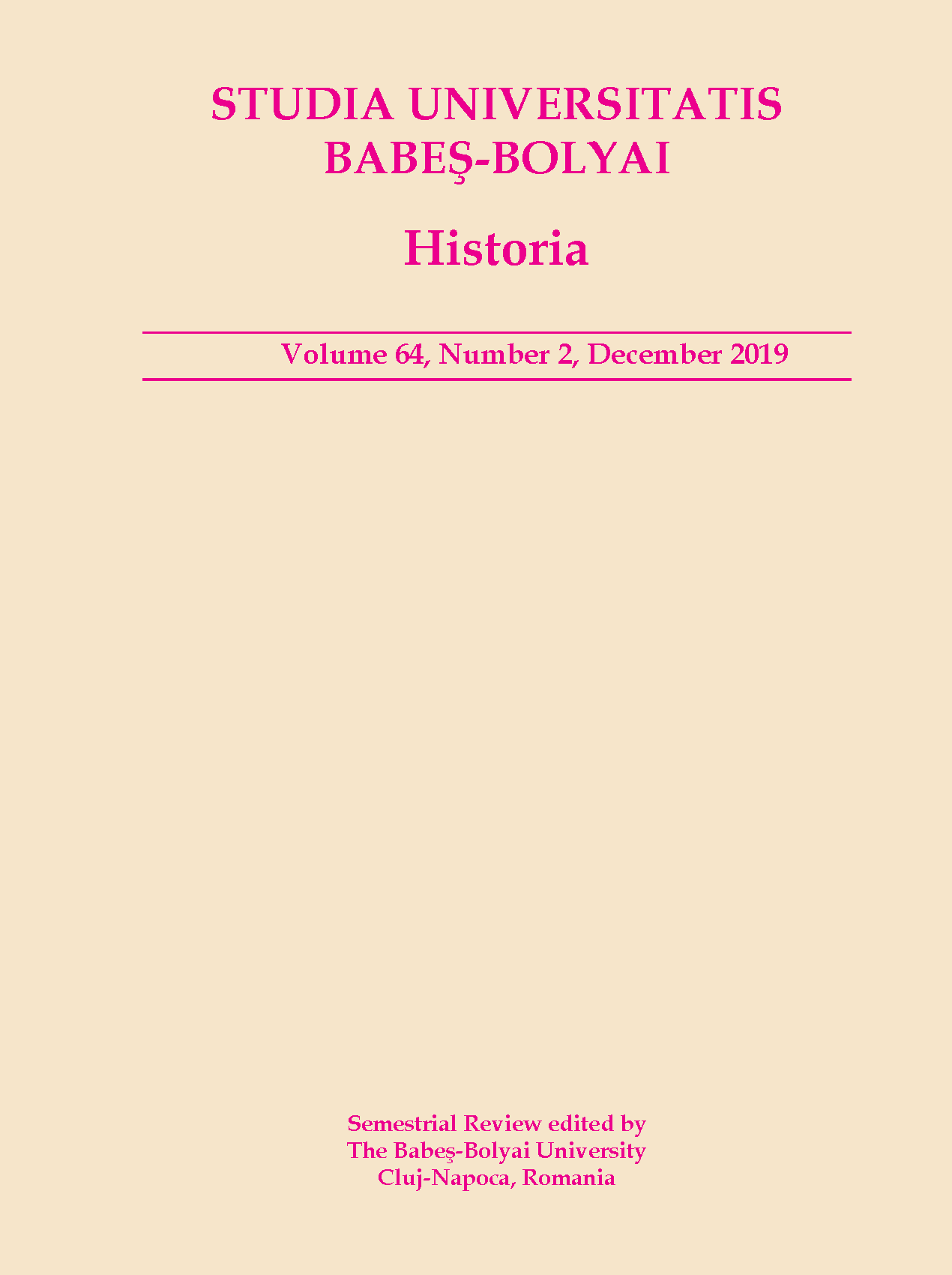
The Typology of the Providential Leader in the Modern Romanian Political Imaginary. In this paper, we will attempt to provide an overview of the typology of the providential leader in the Romanian political culture. The providential ruler is a political myth which gives meaning to modern societies, divided along the fault lines of diverging economic interests and ideological beliefs. We propose a classification centred on the symbolic functions exercised by the political figures. The Saviour, the Martyr, the Vigilante and the Constructor are the four mythical constellations that can adequately structure the specific roles played by the Romanian providential leaders.
More...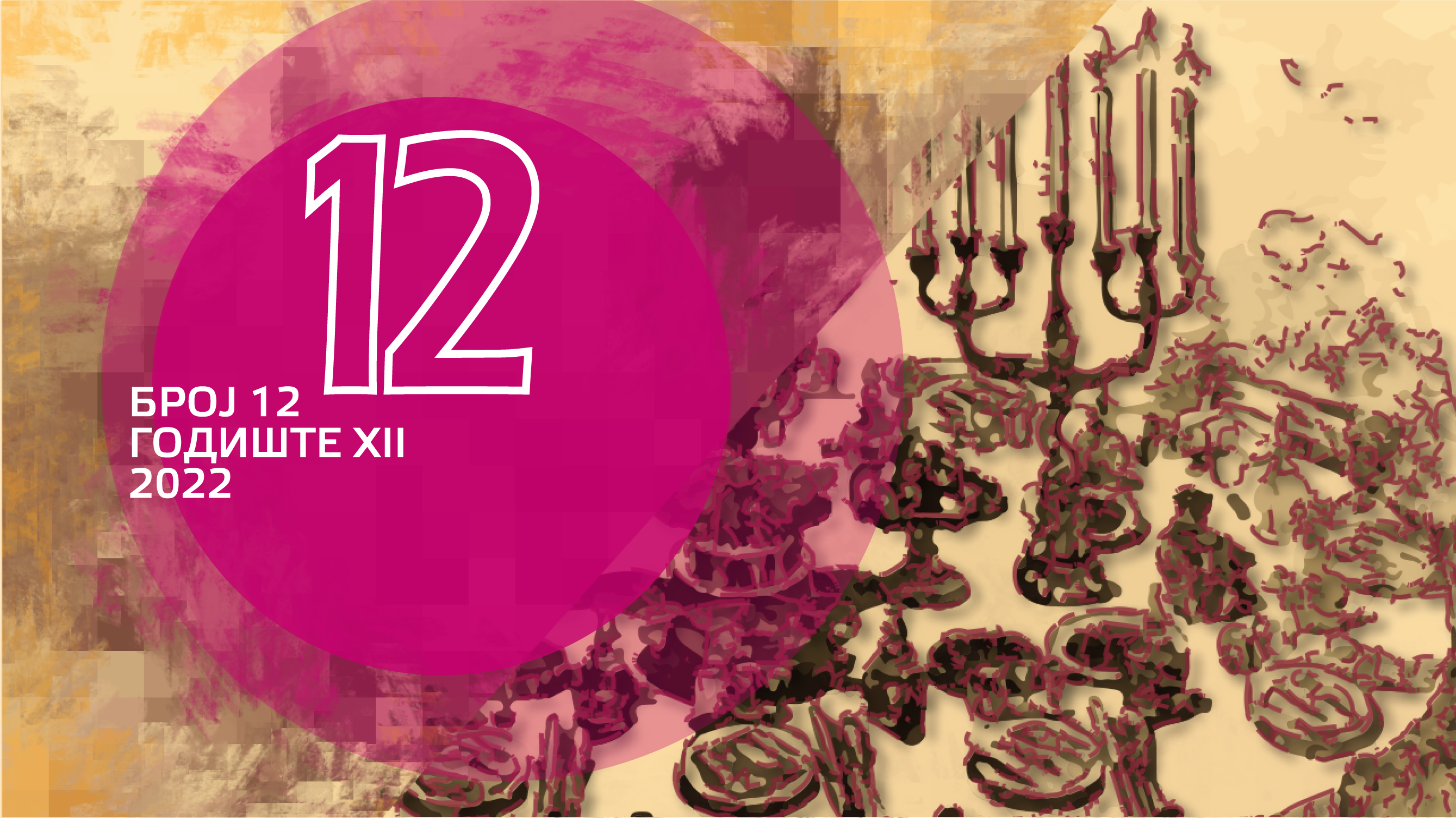
The essay explores the possibilities of a decolonial feminist reading of two collections of short stories by Asja Bakić, titled Mars and Sladostrašće (Lust), with reference to the critical thought developed by Gloria Anzaldúa and María Lugones. The analysis of the positionality of the narrator and the main motifs reveals facets of the features of ‘border thinking’, situated in the specific experiences of marginality and the workings of the hegemonic structures. Decolonial feminism is identified as a suitable analytical framework to engage the contexts of multiple exposures to violent ideologies and patriarchal order. Elements of the rhetoric of modernity, such as development, progress, anthropocentric and technological thinking as presented in the writing of Asja Bakić, are utilized to create the scenery for the violence that is instrumental for the preservation of existing hierarchies. Simultaneously, Bakić also succeeds in avoiding the trap of the essentialized gender representation. Furthermore, frequent references to European literary heritage used by the author are not attempts at cultural appropriation or an expression of an aspiration towards ‘Europeanness’ but offer a means to express or reaffirm literary forms of resistance to the hypocrisy of bourgeois morality and its inherent dehumanization of the ‘other’. Asja Bakić’s stories resist genre classification. This appears to be a deliberate subversion, rather than an incidental outcome of imaginative storytelling by the author. This move is made as an articulation of the Self enmeshed with a reflection of particular social and historical circumstances. Elements of fantasy and mythology are entangled with the memories of socialism and sexual imagery with pornographic hints. The underlying themes of these stories involve power and resistance to power, agency, seizing control, seeking out freedom and taking liberties. Asja Bakić creates literary worlds that – through destabilization, displacement and humor – challenge the imposed ‘universality’ of the male gaze, while at the same time refusing to participate in the fragmentation and dehumanization of her own readership.
More...
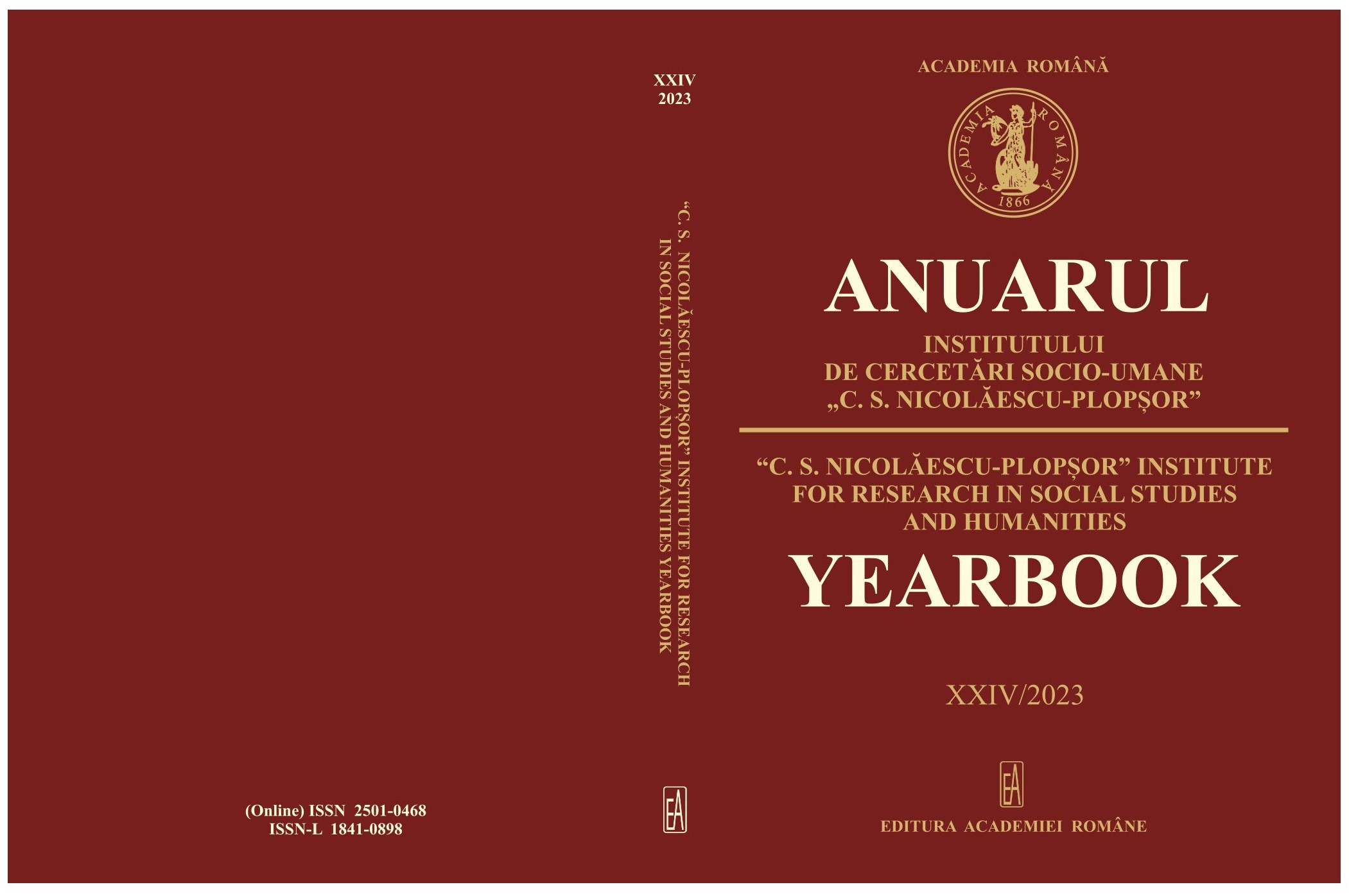
In the present material, there was intended the presentation of some of the Romanian women entrepreneurs who developed sole partnership businesses in Craiova, in the interwar period, as they were recorded in the archival documents and in different edited sources. We notice that most entrepreneurs were housewives, they set up companies whose activities are handled by their husbands and, sometimes, their fathers, or a qualified person (he had a certificate) designated by proxy, but also people who had worked as commercial officials, gained experience working in commercial units, and who opened their own businesses. Analyzing the files of the companies registered with the Chamber of Commerce and Industry of Craiova, and registered in the Trade Register, we identified several profiles of the woman trader in Craiova: having her own business; as guardian of the minor heirs; after her husband’s bankruptcy; as a result of the death of the spouse; as heiress.
More...
The history of women’s struggle for equality during the last two centuries is relatively well documented; studies of women’s history often construct a meliorate narrative in which the progress women have made in recent times represents the final stage in a long upward trajectory. Women’s power and authority extended beyond the limits of their families. The example of the Tudor queens Mary and Elizabeth is well known, and the ‘anomaly’ of Elizabeth’s position has been endlessly noted; but they were not the only women who exercised political authority.Generations of women have found a source of their own empowerment in the power of Shakespeare’s writing and in the cultural authority it carried. In the recent years, as we have seen, the validity of these enthusiastic responses has been called into question by arguments that mobilize the authority of history to insist that the original productions of Shakespeare’s plays-written by a male author to be performed by an exclusively male company of players-expressed an overwhelmingly masculine point of view. The most compelling of these arguments rest on the fact that the presence of a male body beneath the costume of a female character was never far from the awareness of Shakespeare’s original audiences.
More...